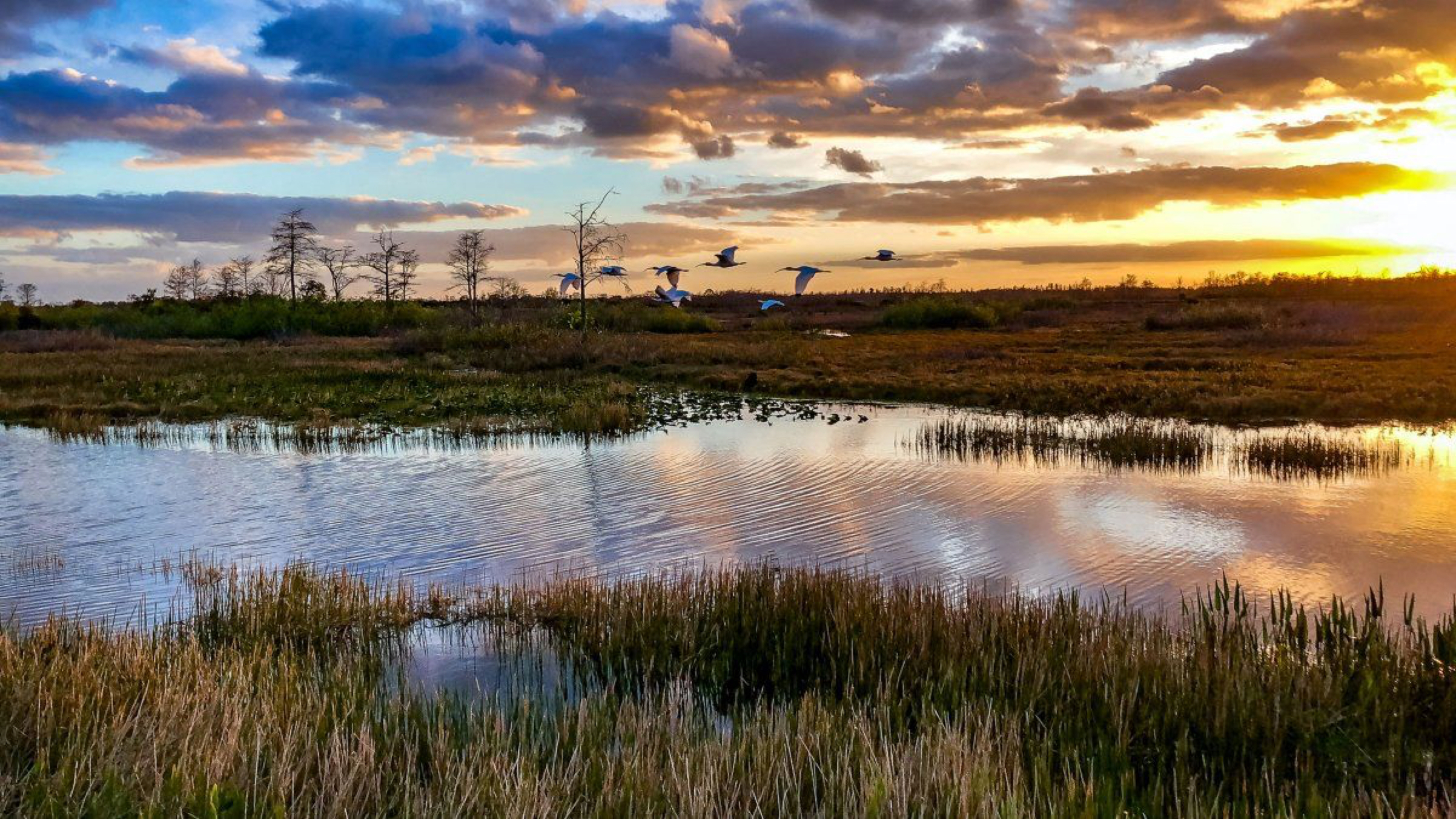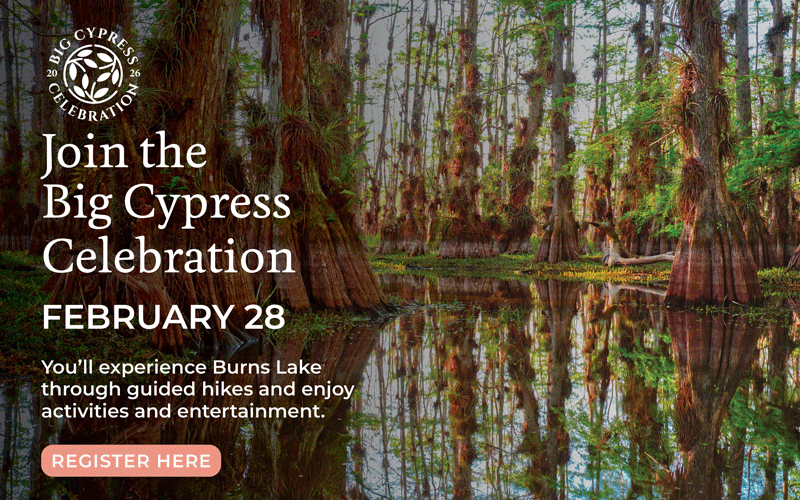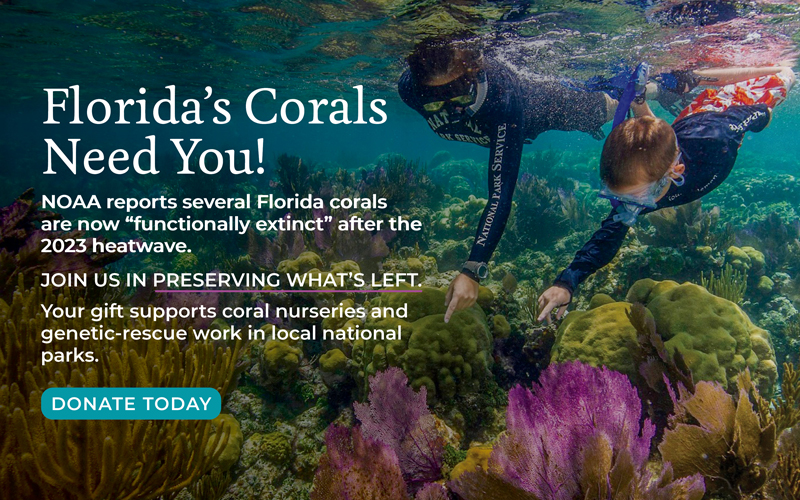Famously called the River of Grass, Everglades National Park is the only place in the world where both alligators and crocodiles coexist. It is the largest subtropical wilderness in the U.S. Its slow-moving waters and sawgrass marshes are also home to unique wading birds and rare species, such as snail kite. Visitors explore the park by airboat, kayak, walking paths, and car.



